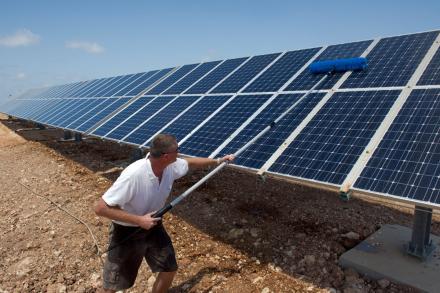Environmental Footprint of UN Peace Operations
The urgent deployment of tens of thousands of civilian, police and military personnel requires a significant amount of logistical support. Peacekeeping personnel often operate in the world’s hardest-to-reach places and in countries where basic energy, water, and sanitation infrastructures are frequently absent or damaged by conflict. This requires most UN peace operations to be self-sufficient for energy production, water supply, solid waste, and wastewater management. If not managed in a safe and responsible manner, they can have a negative impact on people, communities, and local ecosystems through the generation of wastewater, solid / hazardous waste, the use of scarce natural resources such as water, and the emission of greenhouse gases and other air pollutants.

